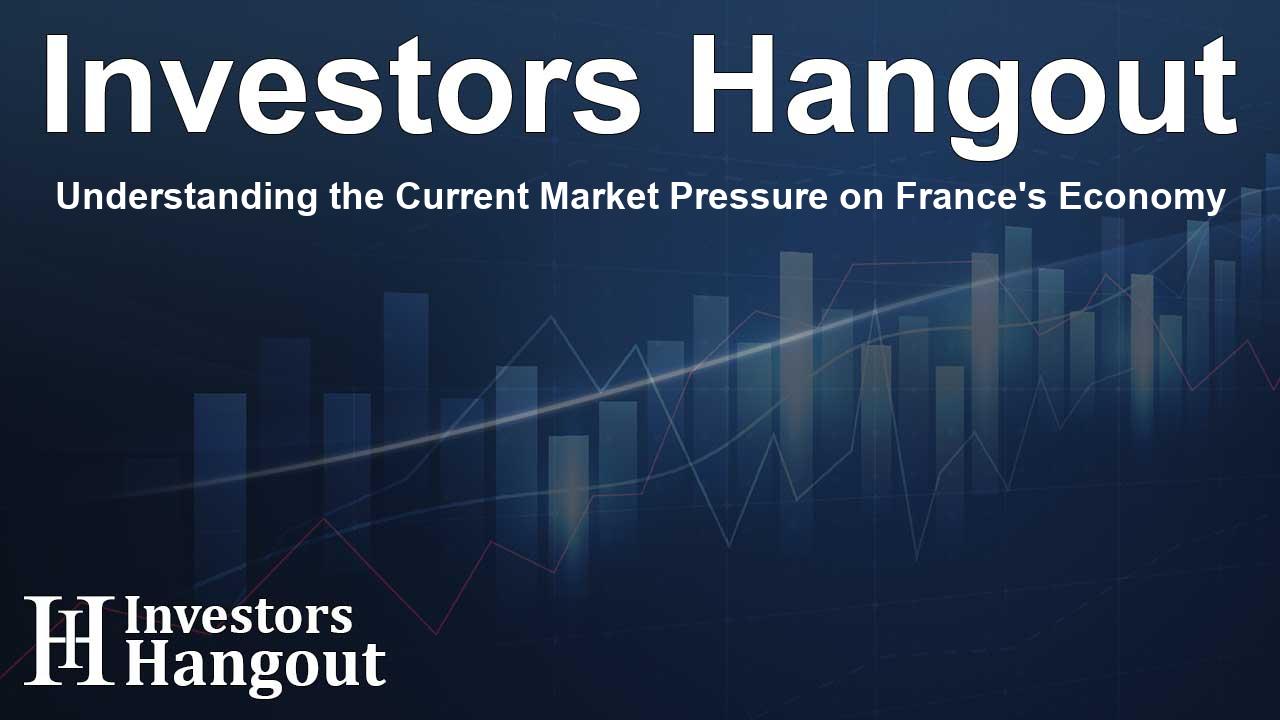Understanding the Current Market Pressure on France's Economy

The Limited Market Pressure on France's Economy
Recent discussions within the European Central Bank have shed light on the evolving dynamics of France's financial landscape. Philip Lane, the ECB's chief economist, has indicated that market pressures regarding France's budget deficit are deemed "limited," emphasizing that such fluctuations are part of the normal market behavior within the euro zone.
Political Crises and Bond Market Reactions
This year, a series of political upheavals has shaken investor confidence in French government bonds. These events have heightened awareness of the nation's budgetary challenges, prompting a rise in the premium investors demand when purchasing French bonds. This increase has reached levels unseen since a significant debt crisis occurred over a decade ago.
The Role of the European Central Bank
Despite these challenges, it seems the ECB is not poised for immediate intervention. Lane suggests that while the central bank possesses various tools to manage the situation, including the ability to utilize its Transmission Protection Instrument, the current circumstances might not necessitate such measures just yet. He described the market movements as "noticeable" yet ultimately manageable.
Long-term Implications for Fiscal Policy
Leadership in France is taking these economic signals seriously. New Prime Minister Francois Bayrou has openly acknowledged the immense challenge of addressing the nation’s deficit, characterizing it as a moral issue in addition to a financial one. This perspective highlights the complexity of fiscal policy, where economic decisions intertwine with political and ethical considerations.
The Broader Euro Zone Context
France is not alone in its struggles. Many governments within the euro zone and beyond have been grappling with large budget deficits, a trend exacerbated by economic circumstances following the pandemic. The anticipated continuation of spending—though at a more moderate rate—reflects a commitment to support initiatives for rearmament and the critical shift towards a more sustainable, digital economy.
Government Spending and Central Bank Strategies
In light of increasing calls for financial backing from central banks to facilitate governmental expenditure, ECB policymaker Pierre Wunsch cautioned against relying on financial aid as a panacea for political challenges. He stressed the importance of allowing democratic processes to unfold rather than seeking quick, financially driven resolutions.
Conclusion: Navigating Economic Pressures
The European Central Bank's recent remarks underscore the delicate balance between market stability and fiscal health. As France navigates its way through political and economic challenges, the path forward emphasizes the need for sound fiscal policy grounded in realistic expectations. Investors and policymakers alike will be watching closely as the situation evolves, understanding that while pressures exist, there exists a framework capable of managing them.
Frequently Asked Questions
What did Philip Lane say about the market pressure on France?
Philip Lane noted that the market pressure regarding France's budget deficit is limited and part of normal euro zone bond market behavior.
What has caused concern over France's budget deficit?
A series of political crises this year has contributed to investor unease, highlighting France's budget challenges and increasing bond yields.
Will the ECB intervene in the French bond market?
Currently, there are no imminent actions from the ECB to cap the spread between French and German bond yields, according to Lane.
What is the significance of Prime Minister Bayrou's comments?
Bayrou emphasized that tackling France's deficit presents a major challenge that intertwines both moral and financial implications.
How are other euro zone countries affected?
Many euro zone governments are facing oversized deficits post-pandemic, with expected continued spending to support economic transitions.
About Investors Hangout
Investors Hangout is a leading online stock forum for financial discussion and learning, offering a wide range of free tools and resources. It draws in traders of all levels, who exchange market knowledge, investigate trading tactics, and keep an eye on industry developments in real time. Featuring financial articles, stock message boards, quotes, charts, company profiles, and live news updates. Through cooperative learning and a wealth of informational resources, it helps users from novices creating their first portfolios to experts honing their techniques. Join Investors Hangout today: https://investorshangout.com/
Disclaimer: The content of this article is solely for general informational purposes only; it does not represent legal, financial, or investment advice. Investors Hangout does not offer financial advice; the author is not a licensed financial advisor. Consult a qualified advisor before making any financial or investment decisions based on this article. The author's interpretation of publicly available data shapes the opinions presented here; as a result, they should not be taken as advice to purchase, sell, or hold any securities mentioned or any other investments. The author does not guarantee the accuracy, completeness, or timeliness of any material, providing it "as is." Information and market conditions may change; past performance is not indicative of future outcomes. If any of the material offered here is inaccurate, please contact us for corrections.